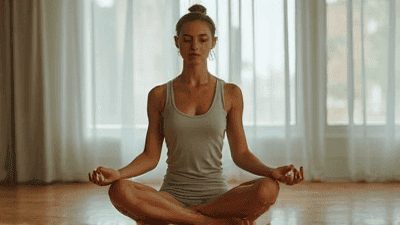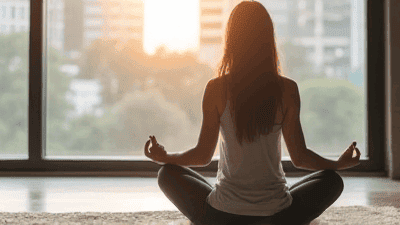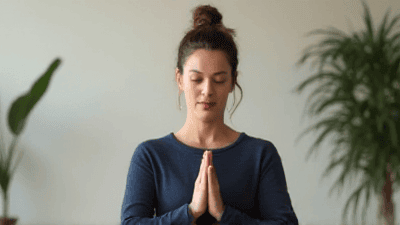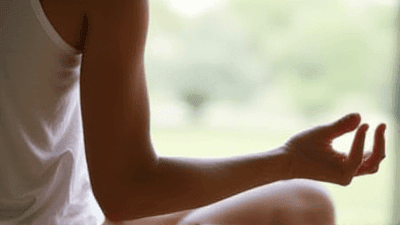
In today's fast-paced world, stress has become a commonplace malady affecting millions of people. The demands of daily life, whether from work, family, or personal commitments, can leave us feeling overwhelmed and anxious. While stress is a natural response to challenging situations, chronic stress can lead to numerous health issues, including anxiety, depression, sleep disturbances, and even physical ailments. Fortunately, one powerful tool for managing stress and promoting emotional well-being is meditation.
Stress is the body's natural response to perceived threats or challenges. When faced with stressors, the body activates the "fight or flight" response, releasing hormones like cortisol and adrenaline. While this response is helpful in acute situations, prolonged exposure to stress can result in negative physical and emotional consequences.
Chronic stress can affect various aspects of health, including:
Understanding the weight of stress is essential in recognizing the need for effective stress management techniques, such as meditation.

One of the most recognized benefits of meditation is its ability to reduce stress. Studies have shown that regular meditation practice can lead to lower levels of cortisol, the body's primary stress hormone. By cultivating mindfulness and promoting relaxation, meditation helps break the cycle of stress and anxiety.
Meditation fosters improved concentration and focus. By training the mind to stay present in the moment, meditation helps enhance cognitive abilities, leading to better problem-solving and decision-making skills.
Meditation promotes emotional regulation and resilience. Practicing mindfulness can help individuals recognize their emotions without judgment, allowing for healthier responses to stressors.
The practice of meditation encourages self-reflection and self-awareness, providing an opportunity to cultivate a deeper understanding of oneself, emotions, and behaviors.
Mindfulness meditation can significantly improve sleep quality. By calming the mind and reducing racing thoughts, meditation sets the stage for restful sleep and relaxation.
Before diving into meditation techniques, it's essential to create a conducive environment to practice. Here’s how to set up your meditation space:
There are several types of meditation, but for beginners, simple techniques are the most effective. Here are a few basic methods to try:
Mindfulness meditation encourages you to focus on the present moment, observing your thoughts and feelings without judgment.
How to Practice:
Guided meditation involves following along with a recorded or live guide leading you through the process. This can be particularly helpful for beginners, as it provides direction.
How to Practice:
This technique involves mentally scanning your body for tension and releasing it, promoting relaxation.
How to Practice:

Now that you understand the basics, let’s put that knowledge into practice. Here’s a simple five-minute meditation routine specifically designed to help you relieve stress.
Begin your session by taking a moment to set an intention for your practice. This could be a simple affirmation like, “I choose to let go of stress” or “I embrace peace in this moment.”
Gently shift your attention to your breath. Use this time to cultivate a sense of calm and relaxation.
Shift your focus from your breath to your body. Notice any sensations, areas of tension, or discomfort.
As your meditation session comes to an end, gently bring your awareness back to the present moment.
Consistency is key when it comes to meditation. Building a regular practice can amplify the benefits and lead to lasting stress relief. Here are some tips to help you incorporate meditation into your daily routine:
Begin with just five minutes daily, gradually increasing the duration as you become more comfortable with the practice. Consistency is more important than duration, especially for beginners.
Set aside a specific time each day for meditation. Whether it’s first thing in the morning, during a lunch break, or before bed, making it a regular commitment can help you build the habit.
Consider utilizing meditation apps or online resources that offer guided meditations and reminders to help keep you on track. Popular options include Headspace, Calm, and Insight Timer.
Connecting with others who are interested in meditation can provide motivation and support. Look for local meditation groups or online communities where you can share experiences and learn together.
Meditation is a practice, and like any other skill, it improves over time. Be patient with yourself as you navigate the ups and downs of your meditation journey, and avoid criticizing yourself if your mind wanders during practice.

Many beginners encounter obstacles when starting a meditation practice. Here are some common challenges and tips for overcoming them:
If your mind races during meditation, remember that this is completely normal. Instead of resisting your thoughts, acknowledge them, and gently bring your focus back to your breath or chosen point of focus.
If you find it hard to sit still for long periods, consider using a meditation cushion or chair that provides comfort. You can also try walking meditation or seated meditations to find what works best for you.
If time is an issue, remember that even a few minutes of meditation can provide benefits. Break your practice into shorter sessions when necessary, and practice whenever you find a quiet moment in your day.
Establishing a regular meditation practice can lead to a wealth of long-term benefits for both mental and physical health. Some potential benefits include:
Scientific research supports the efficacy of meditation in reducing symptoms of anxiety and depression. Mindfulness practices can help individuals better manage their emotions and develop healthier coping mechanisms.
Studies suggest that regular meditation can lead to improvements in cognitive function, including enhanced memory, attention, and executive function.
Practicing mindfulness can improve empathy, communication, and emotional regulation, leading to healthier relationships with others.
Meditation helps build resilience, enabling individuals to cope more effectively with stressors in their lives. This can improve overall quality of life and emotional well-being.
Alongside mental health benefits, research indicates meditation may lower blood pressure, reduce chronic pain, and improve immune function. As reducing stress can positively impact physical health, the benefits of meditation extend beyond the mind.
Mastering the art of meditation offers a powerful tool for combating stress and enhancing overall well-being. By dedicating just five minutes a day to this practice, you can cultivate a greater sense of inner peace, self-awareness, and emotional stability. Whether you choose mindfulness, guided meditation, or body awareness techniques, every effort towards meditation is a step closer to leading a more balanced and fulfilling life.
Embarking on your meditation journey may take time and practice, but the rewards are well worth the effort. So take a deep breath, set your intention, and make meditation a part of your daily routine. Revel in the positive changes it brings to your life, and remember that stress relief is just a few moments of mindfulness away.